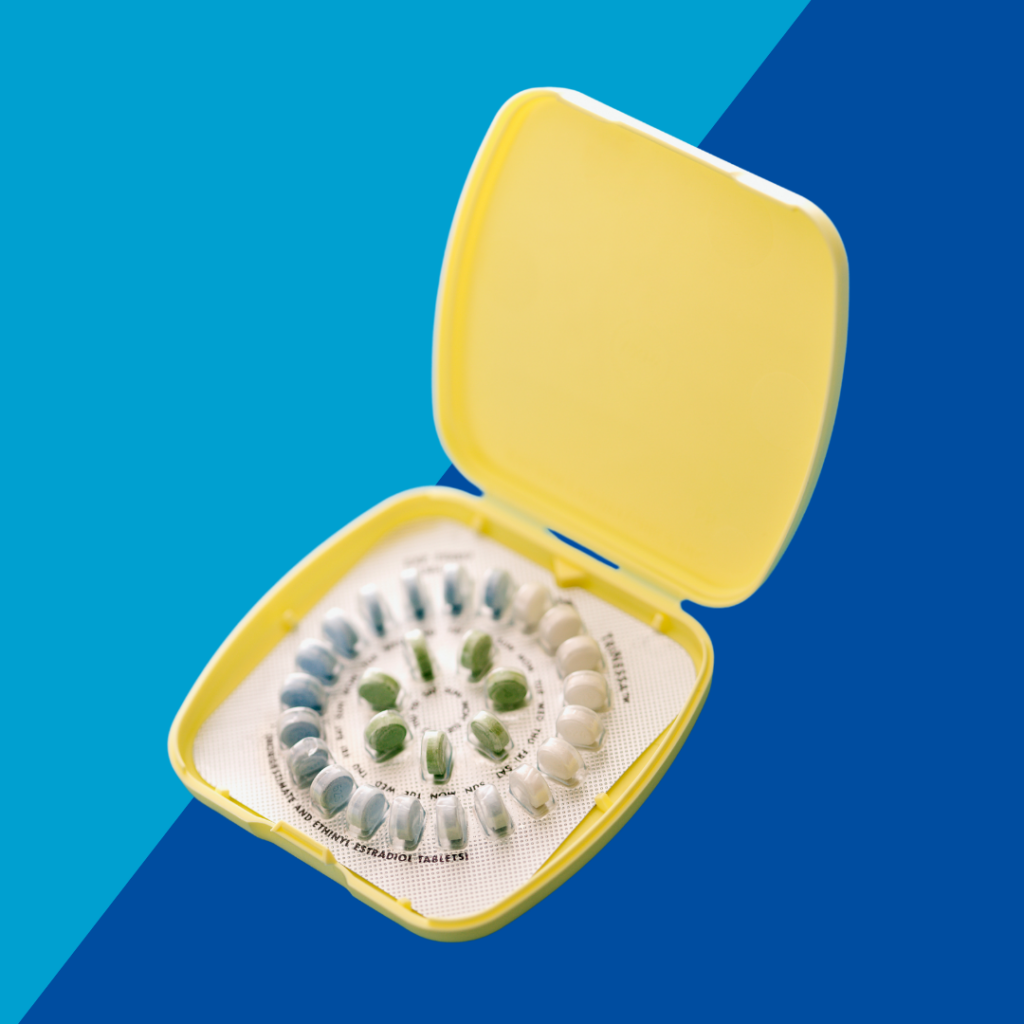Find the right birth control for you

Ok, let’s just get this out of the way– I’m a doctor. Specifically a pediatrician, so I take care of babies, kids, and teens from birth to age 20. If you’d rather not hear from me, I get it. Unfortunately, many people (myself included!) have had bad experiences with healthcare providers. Maybe you’ve felt judged, shamed, ignored, or just straight up confused. And I know this is especially common for those who are female-identifying, BIPOC, people with disabilities, immigrants, etc. So on behalf of the whole field–my sincere apologies. You deserve better. And on behalf of the team here at ICAN! – I hope you give us another chance!
I know it can be especially hard or awkward to talk to a healthcare provider about birth control. Maybe you’re a teen, and you’re worried the doctor is going to tell your parents. Maybe you identify as male and don’t want to have periods anymore, but aren’t sure if your nurse practitioner is trans-affirming. Or maybe you’ve had tons of side effects with the pill, and are scared you’ll be dismissed if you tell your midwife. My hope is that some of the info here might be helpful:
-
- First, what I tell every patient is that there is no right or wrong answer when it comes to choosing a method of birth control, and there is no “best method” for everyone. Each person is different, and my job is to listen to your preferences and your body so you make a decision that feels right for you.
- Next– it’s ok to change your mind! Even if you put a ton of thought into picking a method, and even if that method could last several years, it’s perfectly fine to want to stop or change methods. Aside from tubal ligation/vasectomy, all other methods of birth control are 100% reversible, so feel free to try out as many options as you need until you find one that you’re comfortable with!
- And let’s be real: every method has pros and cons. There are researchers working hard to improve the current options and come up with new birth control methods, but there are currently no options available that can promise 0% risk of side effects. (If anyone tells you that, I promise you they are lying. Walk away. And if they’re on TikTok/Youtube/Insta… unfollow them. Right now.) The goal is to find a method that works for YOUR body and has zero or few/acceptable side effects for you personally.Even though everyone’s body is different (eg. your sister might have a side effect that you don’t have), it’s still super helpful to know what you’re worried about, so talk to your doctor about concerns you may have.
- Plus, what one person thinks is a side effect might be a huge perk for another person. I absolutely love not getting my period every month anymore, but lots of people would hate that! So when I talk to patients, I try to figure out what their priorities are. Some things we usually talk about:
- How important is it to you to prevent pregnancy? → If you’re sure you don’t want to be pregnant in the next few years, a long-acting method (LARC) such as an IUD or Implant might be the most appealing.
-
- How often do you need birth control? → if you don’t have sex frequently (eg. you’re in a long distance relationship), maybe it makes sense to have a method to use only as-needed, such as the cervical cap/diaphragm or condoms.
- How hard is it for you to keep track of dates and deadlines? → If you’re super organized, you might be the perfect candidate for methods that require consistency such as the pill (every day), patch (every week), or shot (every 3 months).
- How often do you want to talk to your healthcare provider? → if you live far away from a clinic or work night shifts, an over-the-counter option such as Opill might be more convenient.
- How do you feel about hormones? → Some methods of birth control contain very low doses of hormones, but if that doesn’t feel right to you or you’ve had side effects in the past, hormone-free options include the Copper IUD, vaginal gel, condoms, or fertility awareness.
- How crucial is it that nobody else finds out you are on birth control? → Someone might see the pills in your purse or the patch on your body, so the shot or IUD might be ideal if you’re keeping this decision private. ***However: if your partner is trying to prevent you from using birth control or force you to get pregnant against your will, that is SUPER NOT OKAY and may be a type of abuse/relationship violence! Please reach out to a trusted healthcare provider, friend, or the IL DV Hotline: 877-863-6338 or https://the-network.org/ for help and resources!***
- Do you have other symptoms or medical conditions? → some types of birth control such as the pill can help with things like menstrual cramps, acne, anemia, endometriosis, etc. In fact, many people use birth control even if they aren’t having sex in order to treat these issues. But if you have other medical conditions like high blood pressure or migraines, or if you take other medications, your doctor might need to cut some options from the list for you for safety reasons.
Are you worried about cost? → Most birth control methods are available for free or low cost through health insurance from a job, Medicaid, the HFS family planning program, or Title X. Free condoms are available at most clinics and high schools, and the Opill and Plan B (the morning-after pill) can be purchased without a prescription online and in many pharmacies. There are also generic (non-brand-name) versions of emergency contraception that are usually cheaper. This quick quiz has more info about ways to pay for birth control.




